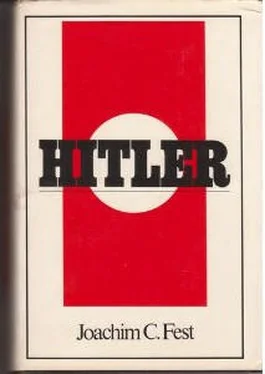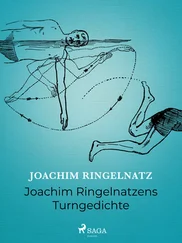Joachim Fest - Hitler
Здесь есть возможность читать онлайн «Joachim Fest - Hitler» весь текст электронной книги совершенно бесплатно (целиком полную версию без сокращений). В некоторых случаях можно слушать аудио, скачать через торрент в формате fb2 и присутствует краткое содержание. Город: New York, Год выпуска: 1974, ISBN: 1974, Издательство: A Harvest Book, Жанр: Биографии и Мемуары, на английском языке. Описание произведения, (предисловие) а так же отзывы посетителей доступны на портале библиотеки ЛибКат.
- Название:Hitler
- Автор:
- Издательство:A Harvest Book
- Жанр:
- Год:1974
- Город:New York
- ISBN:9780151416509
- Рейтинг книги:5 / 5. Голосов: 1
-
Избранное:Добавить в избранное
- Отзывы:
-
Ваша оценка:
- 100
- 1
- 2
- 3
- 4
- 5
Hitler: краткое содержание, описание и аннотация
Предлагаем к чтению аннотацию, описание, краткое содержание или предисловие (зависит от того, что написал сам автор книги «Hitler»). Если вы не нашли необходимую информацию о книге — напишите в комментариях, мы постараемся отыскать её.
Index. Translated by Richard and Clara Winston. A Helen and Kurt Wolff Book
Hitler — читать онлайн бесплатно полную книгу (весь текст) целиком
Ниже представлен текст книги, разбитый по страницам. Система сохранения места последней прочитанной страницы, позволяет с удобством читать онлайн бесплатно книгу «Hitler», без необходимости каждый раз заново искать на чём Вы остановились. Поставьте закладку, и сможете в любой момент перейти на страницу, на которой закончили чтение.
Интервал:
Закладка:
Joachim C. Fest
HITLER

Prologue
Hitler and Historical Greatness
Neither blindness nor ignorance corrupts people and governments. They soon realize where the path they have taken is leading them. But there is an impulse within them, favored by their natures and reinforced by their habits, which they do not resist; it continues to propel them forward as long as they have a remnant of strength. He who overcomes himself is divine. Most see their ruin before their eyes; but they go on into it.1
Leopold von RankeHistory records no phenomenon like him. Ought we to call him “great”? No one evoked so much rejoicing, hysteria, and expectation of salvation as he; no one so much hate. No one else produced, in a solitary course lasting only a few years, such incredible accelerations in the pace of history. No one else so changed the state of the world and left behind such a wake of ruins as he did. It took a coalition of almost all the world powers to wipe him from the face of the earth in a war lasting nearly six years, to kill him—to quote an army officer of the German resistance—“like a mad dog.”
Hitler’s peculiar greatness is essentially linked to the quality of excess. It was a tremendous eruption of energy that shattered all existing standards. Granted, gigantic scale is not necessarily equivalent to historic greatness; there is power in triviality also. But he was not only gigantic and not only trivial. The eruption he unleashed was stamped throughout almost every one of its stages, down to the weeks of final collapse, by his guiding will. In many speeches, he recalled, with a distinctly rapturous note, the period of his beginnings, when he had “nothing at all to back (him), nothing, no name, no fortune, no press, nothing at all, nothing whatsoever,” and how, entirely by his own efforts, he had risen from “poor devil” to rule over Germany and soon over part of the world as well. “That has been almost miraculous!” 2In fact, to a virtually unprecedented degree, he created everything out of himself and was himself everything at once: his own teacher, organizer of a party and author of its ideology, tactician and demagogic savior, leader, statesman, and for a decade the “axis” of the world. He refuted the dictum that all revolutions devour their children; for he was, as has been said, “the Rousseau, the Mirabeau, the Robespierre and the Napoleon of his revolution; he was its Marx, its Lenin, its Trotsky and its Stalin. By character and nature he may have been far inferior to most of these, but he nevertheless managed to achieve what all of them could not: he dominated his revolution in every phase, even in the moment of defeat. That argues a considerable understanding of the forces he evoked.” 3
He also had an amazing instinct for what forces could be mobilized at all and did not allow prevailing trends to deceive him. The period of his entry into politics was wholly dominated by the liberal bourgeois system. But he grasped the latent oppositions to it and by bold and wayward combinations seized upon these factors and incorporated them into his program. His conduct seemed foolish to political minds, and for years the arrogant Zeitgeist did not take him seriously. The mockery he earned was justified by his appearance, his rhetorical flights, and the theatrical atmosphere he deliberately created. Yet in a manner difficult to describe he always stood above his banal and dull-witted aspects. One particular source of his strength lay in his ability to build castles in the air with an intrepid and acute rationality.
In 1925, Hitler had been sitting in a furnished room in Munich, a failed Bavarian local politician, drawing his sketches of imaginary arches of triumph and domed halls. In spite of the collapse of all his hopes after the attempted putsch of November, 1923, he did not take back a single one of his words, did not mute his battle cry, and refused to modify any of his plans for domination of the world. In those days, he later remarked, everyone had branded him a visionary. “They always said I was crazy.” But only a few years later everything he had wanted was reality, or at any rate a realizable project, and those institutions that had recently seemed to be permanent and unchallenged were on their way out: democracy and political-party government, unions, international workers’ solidarity, the European system of alliances, and the League of Nations. “Who was right?” Hitler triumphantly demanded. “The visionary or the others?—I was right.” 4
In this ability to uncover the deeper spirit and tendencies of the age, and to represent those tendencies, there certainly is an element of historic greatness. “It appears to be the destiny of greatness,” Jacob Burckhardt wrote in his famous essay on historical greatness, in Reflections on History, “that it executes a will going beyond individual desires.” Burckhardt speaks of “the mysterious coincidence between the egoism of the individual and the communal will.” In general terms and at times in specific details, Hitler’s career seems like a classic illustration of this tenet. The following chapters contain a wealth of evidence of that. The same is true for the other elements that in Burckhardt’s view constitute historical greatness. Irreplaceability is one; “he leads a people from one stage of cultivation to another.” He “stands not only for the program and the fury of a party, but for a more general aim.” He manifests the ability “to jump boldly across the abyss”; he has the capacity of simplification, the gift of distinguishing between real and illusory powers, and finally the exceptional will power that creates an atmosphere of fascination. “Contest at close quarters becomes utterly impossible. Anyone desiring to oppose him must live outside of the reach of the man, with his enemies, and can meet him only on the battlefield.” 5
And yet we hesitate to call Hitler “great.” Perhaps what gives us pause is not so much the criminal features in this man’s psychopathic face. For world history is not played out in the area that is “the true site of morality,” and Burckhardt has also spoken of the “strange exemption from the ordinary moral code” which we tend to grant in our minds to great individuals. 6We may surely ask whether the absolute crime of mass extermination planned and committed by Hitler is not of an utterly different nature, overstepping the bounds of the moral context recognized by both Hegel and Burckhardt. Our doubts of Hitler’s historic greatness also spring from another factor. The phenomenon of the great man is primarily aesthetic, very rarely moral in nature; and even if we were prepared to make allowances in the latter realm, in the former we could not. An ancient tenet of aesthetics holds that one who for all his remarkable traits is a repulsive human being, is unfit to be a hero. It may be—and evidence will be offered—that this description fits Hitler very well. His many opaque, instinctual traits, his intolerance and vindictiveness, his lack of generosity, his banal and naked materialism—power was the only motive he would recognize, and he repeatedly forced his table companions to join him in his scorn of anything else as “bosh”—and in general his unmistakably vulgar characteristics give his image a cast of repugnant ordinariness that simply will not square with the traditional concept of greatness. “Impressiveness in this world,” wrote Bismarck in a letter, “is always akin to the fallen angel who is beautiful but without peace, great in his plans and efforts, but without success, proud and sad.” If this is true greatness, Hitler’s distance from it is immeasurable.
Читать дальшеИнтервал:
Закладка:
Похожие книги на «Hitler»
Представляем Вашему вниманию похожие книги на «Hitler» списком для выбора. Мы отобрали схожую по названию и смыслу литературу в надежде предоставить читателям больше вариантов отыскать новые, интересные, ещё непрочитанные произведения.
Обсуждение, отзывы о книге «Hitler» и просто собственные мнения читателей. Оставьте ваши комментарии, напишите, что Вы думаете о произведении, его смысле или главных героях. Укажите что конкретно понравилось, а что нет, и почему Вы так считаете.





![Traudl Junge - Hitler's Last Secretary - A Firsthand Account of Life with Hitler [aka Until the Final Hour]](/books/416681/traudl-junge-hitler-s-last-secretary-a-firsthand-thumb.webp)






